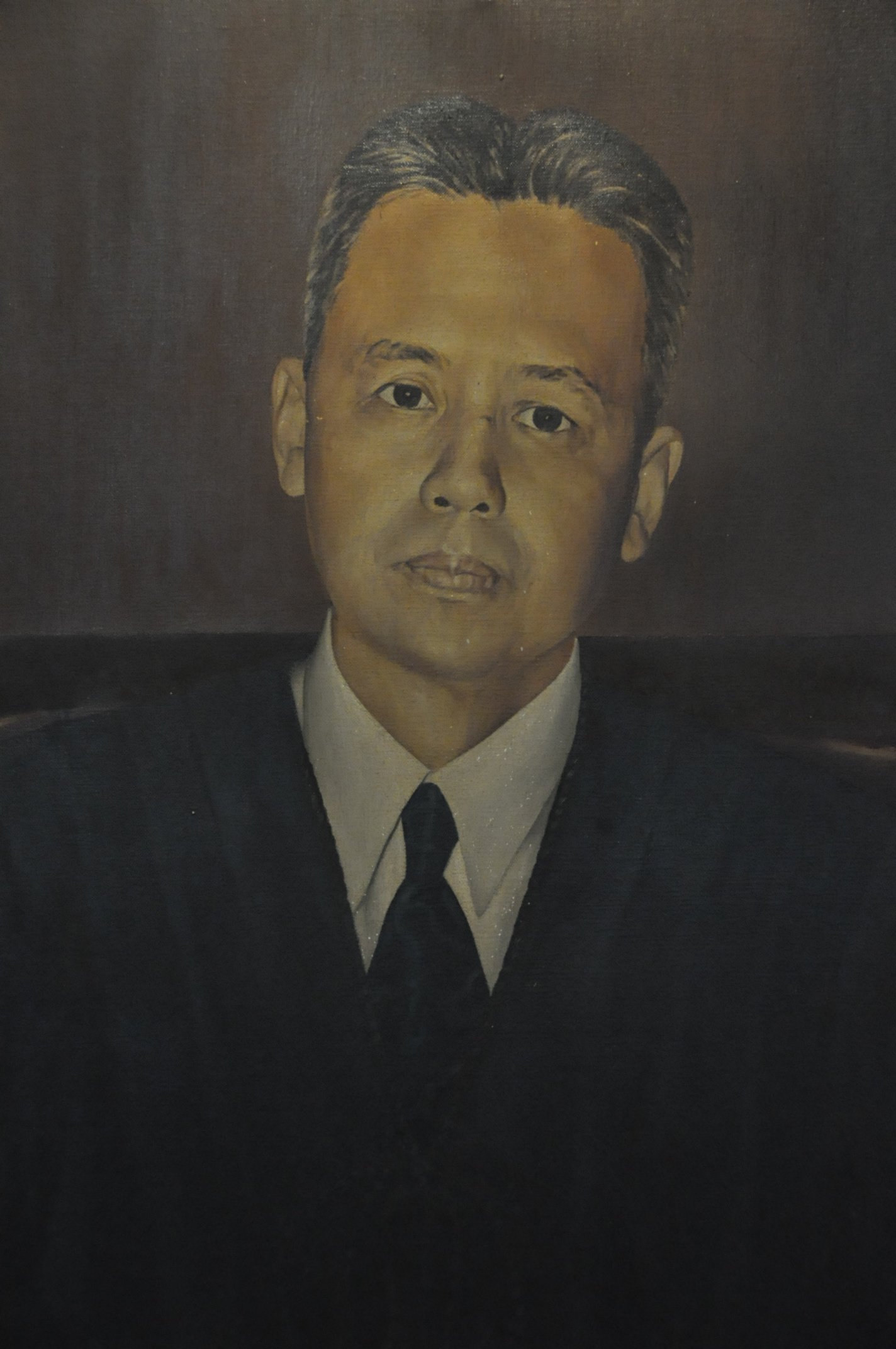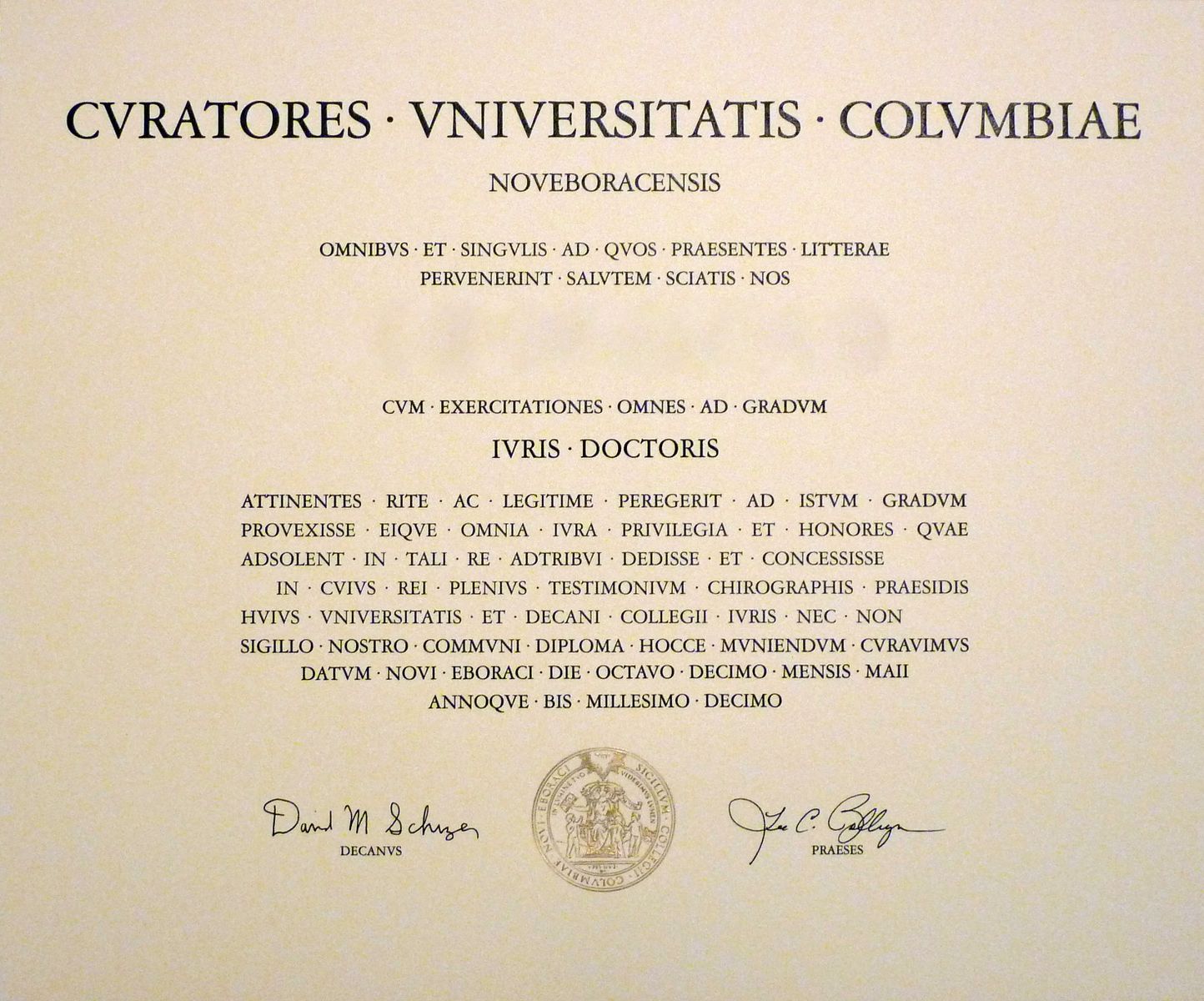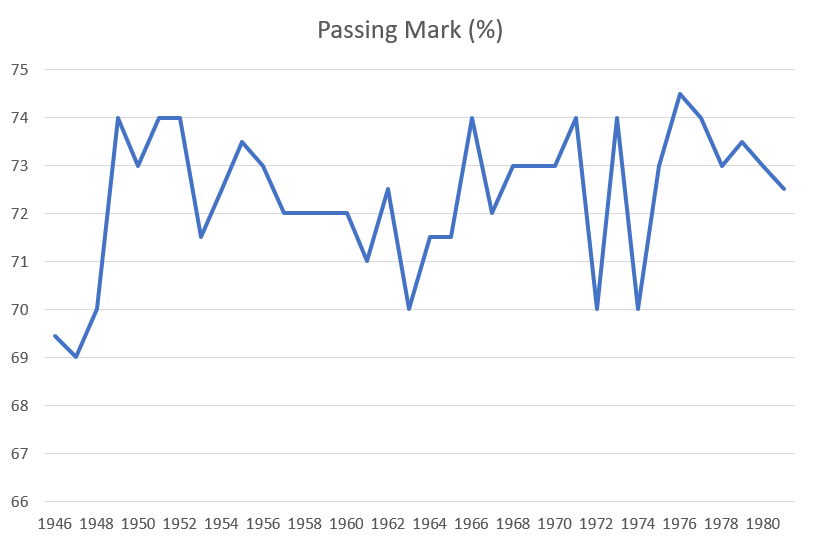|
Legal Education In The Philippines
Legal education in the Philippines is developed and offered by Philippine law schools, supervised by the Legal Education Board. Previously, the Commission on Higher Education supervises the legal education in the Philippines but was replaced by the Legal Education Board since 1993 after the enactment of Republic Act No. 7662 or the Legal Education Reform Act of 1993. History The legal education in the Philippines was first introduced during the Spanish occupation when, in 1734, the University of Santo Tomas established the Faculty of Civil Law. In 1899 the First Filipino owned law school was founded, the Escuela De Derecho De Manila, today known as the Manila Law College, by Don Felipe G. Calderon, when he saw the need for a law school which could train Filipino lawyers and provide legal services to the New Republic. After the Malolos Constitution was ratified, the Universidad Literaria de Filipinas was established by Joaquin Gonzalez in 1899; the said institution offered sever ... [...More Info...] [...Related Items...] OR: [Wikipedia] [Google] [Baidu] |
Legal Education Board
The Legal Education Board, or known widely by its abbreviation LEB, is an independent government agency responsible for the regulation of the legal education in the Philippines. The agency was created on December 23, 1993 through the enactment of Republic Act No. 7662 or the Legal Education Act of 1993. Currently, the Board is chaired by Jason R. Barlis. History Prior to the creation of the Board, the legal education in the Philippines was largely left unsupervised. However, on December 23, 1993, Republic Act No. 7662, or the Legal Education Reform Act of 1993 through the authorship of Senator Edgardo Angara, was created into law. Despite the creation of the Board, it only became operational after 16 years. In 2009, through the efforts of Senator Angara, the Board was given its first operational budget of 10 million pesos. In the same year, former Court of Appeals Hilarion Aquino was appointed as its first Chairman. His term was supposedly to end on 2014, but had to occupy his pos ... [...More Info...] [...Related Items...] OR: [Wikipedia] [Google] [Baidu] |
Supreme Court Of The Philippines
The Supreme Court (; colloquially referred to as the ' (also used in formal writing), is the highest court in the Philippines. It was established by the Taft Commission on June 11, 1901, through the enactment of Act No. 136, which abolished the Real Audiencia of Manila, the predecessor of the Supreme Court. The Supreme Court compound is located in what was formerly a part of the University of the Philippines Manila campus. It occupies the corner of Padre Faura Street and Taft Avenue in Ermita, Manila, with the main building sited directly in front of Philippine General Hospital's cancer institute. History Early history Prior to the conquest of Spain, the islands of the Philippines were composed of independent barangay state, barangays, each of which is a community composed of 30 to 100 families. Typically, a barangay is headed by a ''datu'' or a local chief who exercises all functions of government: executive, legislative and judicial; he is also the commander-in-chief in time ... [...More Info...] [...Related Items...] OR: [Wikipedia] [Google] [Baidu] |
Juris Doctor
A Juris Doctor, Doctor of Jurisprudence, or Doctor of Law (JD) is a graduate-entry professional degree that primarily prepares individuals to practice law. In the United States and the Philippines, it is the only qualifying law degree. Other jurisdictions, such as Australia, Canada, and Hong Kong, offer both the postgraduate JD degree as well as the undergraduate Bachelor of Laws, Bachelor of Civil Law, or other qualifying law degree. Originating in the United States in 1902, the degree generally requires three years of full-time study to complete and is conferred upon students who have successfully completed coursework and practical training in legal studies. The JD curriculum typically includes fundamental legal subjects such as constitutional law, civil procedure, criminal law, contracts, property, and torts, along with opportunities for specialization in areas like international law, corporate law, or public policy. Upon receiving a JD, graduates must pass a bar examinatio ... [...More Info...] [...Related Items...] OR: [Wikipedia] [Google] [Baidu] |
Philippine Bar Examination
The Philippine Bar Examinations is the professional licensure examination for lawyers in the Philippines. The exam is exclusively administered by the Supreme Court of the Philippines through the Supreme Court Bar Examination Committee. History The first Philippine Bar Exams were conducted in 1901 with only 13 examinees. The third Philippine Bar Exam took place in 1903 but the results were released in 1905. José L. Quintos of Escuela de Derecho de Manila (now Manila Law College) obtained the highest rating of 96.33%, future President Sergio Osmeña was second with 95.66%, future CFI Judge Fernando Salas was third with 94.5% and future President Manuel L. Quezon fourth with 87.83%. The bar exam in 1903 had only 13 examinees. The first Roll of Attorneys were listed in 1945 after the 1944 bar exam. After the 1903 exam, rankings were again avoided until the 1913 exam, with its first English exam and first top-ten list of topnotchers led by future president Manuel Roxas from UP Man ... [...More Info...] [...Related Items...] OR: [Wikipedia] [Google] [Baidu] |
Bachelor's Degree
A bachelor's degree (from Medieval Latin ''baccalaureus'') or baccalaureate (from Modern Latin ''baccalaureatus'') is an undergraduate degree awarded by colleges and universities upon completion of a course of study lasting three to six years (depending on the institution and academic discipline). The two most common bachelor's degrees are the Bachelor of Arts (BA) and the Bachelor of Science (BS or BSc). In some institutions and educational systems, certain bachelor's degrees can only be taken as graduate or postgraduate educations after a first degree has been completed, although more commonly the successful completion of a bachelor's degree is a prerequisite for further courses such as a master's or a doctorate. In countries with qualifications frameworks, bachelor's degrees are normally one of the major levels in the framework (sometimes two levels where non-honours and honours bachelor's degrees are considered separately). However, some qualifications titled bachelor's ... [...More Info...] [...Related Items...] OR: [Wikipedia] [Google] [Baidu] |
Political Law
Political law (or political activity law) is an established legal practice area encompassing the intersection of politics and law. Political law comprises election law, voting rights law, campaign finance law, laws governing lobbying and lobbyists, open government laws, legislative and executive branch ethics codes, legislative procedure, administrative procedure, constitutional law, and legislative and regulatory drafting. Political laws are applied primarily to government officials, candidates, advocacy groups, lobbyists, businesses, nonprofit organizations, and trade unions. At the federal level, the Federal Election Commission enforces campaign finance law with respect to races for the United States House of Representatives, United States Senate, and the office of President of the United States. Campaigns for federal office are subject to contribution limits and certain contributions are prohibited. ThDepartment of Justice's Public Integrity Section (PIN)has jurisdiction involvin ... [...More Info...] [...Related Items...] OR: [Wikipedia] [Google] [Baidu] |
Public Law
Public law is the part of law that governs relations and affairs between legal persons and a government, between different institutions within a state, between different branches of governments, as well as relationships between persons that are of direct concern to society. Public law comprises constitutional law, administrative law, tax law and criminal law, as well as all procedural law. Laws concerning relationships between individuals belong to private law. The relationships public law governs are asymmetric and unequalized. Government bodies (central or local) can make decisions about the rights of persons. However, as a consequence of the rule-of-law doctrine, authorities may only act within the law (''secundum et intra legem''). The government must obey the law. For example, a citizen unhappy with a decision of an administrative authority can ask a court for judicial review. The distinction between public law and private law dates back to Roman law, where the R ... [...More Info...] [...Related Items...] OR: [Wikipedia] [Google] [Baidu] |
Philippine Legal Codes
Codification of laws is a common practice in the Philippines. Many general areas of substantive law, such as criminal law, civil law and labor law are governed by codes of law. Tradition Codification is predominant in countries that adhere to the legal system of civil law. Spain, a civil law country, introduced the practice of codification in the Philippines, which it had colonized beginning in the late 16th century. Among the codes that Spain enforced in the Philippines were the Spanish Civil Code and the Penal Code. The practice of codification was retained during the period of American colonial period, even though the United States was a common law jurisdiction. At the time, many common law principles found their way into the legal system by way of legislation and by judicial pronouncements. Judicial precedents of the Philippine Supreme Court were accepted as binding, a practice more attuned to common law jurisdictions. Eventually, the Philippine legal system emerg ... [...More Info...] [...Related Items...] OR: [Wikipedia] [Google] [Baidu] |
Private Law
Private law is that part of a legal system that governs interactions between individual persons. It is distinguished from public law, which deals with relationships between both natural and artificial persons (i.e., organizations) and the state, including regulatory statutes, penal law and other law that affects the public order. In general terms, private law involves interactions between private individuals, whereas public law involves interrelations between the state and the general population. In legal systems of the civil law tradition, it is that part of the that involves relationships between individuals, such as the law of contracts and torts (as it is called in the common law tradition), and the law of obligations (as it is called in the civil law tradition). Concept One of the five capital lawyers in Roman law, Domitius Ulpianus, (170–223) – who differentiated ''ius publicum'' from ''ius privatum'' – the European, more exactly the continental law, p ... [...More Info...] [...Related Items...] OR: [Wikipedia] [Google] [Baidu] |
Sharia Law
Sharia, Sharī'ah, Shari'a, or Shariah () is a body of religious law that forms a part of the Islamic tradition based on scriptures of Islam, particularly the Qur'an and hadith. In Islamic terminology ''sharīʿah'' refers to immutable, intangible divine law; contrary to ''fiqh'', which refers to its interpretations by Islamic scholars. Sharia, or fiqh as traditionally known, has always been used alongside customary law from the very beginning in Islamic history; has been elaborated and developed over the centuries by legal opinions issued by qualified jurists – reflecting the tendencies of different schools – and integrated and with various economic, penal and administrative laws issued by Muslim rulers; and implemented for centuries by judges in the courts until recent times, when secularism was widely adopted in Islamic societies. Traditional theory of Islamic jurisprudence recognizes four sources for Ahkam al-sharia: the Qur'an, '' sunnah'' (or authentic ... [...More Info...] [...Related Items...] OR: [Wikipedia] [Google] [Baidu] |
Islamic Law
Sharia, Sharī'ah, Shari'a, or Shariah () is a body of religious law that forms a part of the Islamic tradition based on scriptures of Islam, particularly the Qur'an and hadith. In Islamic terminology ''sharīʿah'' refers to immutable, intangible divine law; contrary to ''fiqh'', which refers to its interpretations by Islamic scholars. Sharia, or fiqh as traditionally known, has always been used alongside customary law from the very beginning in Islamic history; has been elaborated and developed over the centuries by legal opinions issued by qualified jurists – reflecting the tendencies of different schools – and integrated and with various economic, penal and administrative laws issued by Muslim rulers; and implemented for centuries by judges in the courts until recent times, when secularism was widely adopted in Islamic societies. Traditional theory of Islamic jurisprudence recognizes four sources for Ahkam al-sharia: the Qur'an, ''sunnah'' (or authentic ahadi ... [...More Info...] [...Related Items...] OR: [Wikipedia] [Google] [Baidu] |
Common Law
Common law (also known as judicial precedent, judge-made law, or case law) is the body of law primarily developed through judicial decisions rather than statutes. Although common law may incorporate certain statutes, it is largely based on precedent—judicial rulings made in previous similar cases. The presiding judge determines which precedents to apply in deciding each new case. Common law is deeply rooted in Precedent, ''stare decisis'' ("to stand by things decided"), where courts follow precedents established by previous decisions. When a similar case has been resolved, courts typically align their reasoning with the precedent set in that decision. However, in a "case of first impression" with no precedent or clear legislative guidance, judges are empowered to resolve the issue and establish new precedent. The common law, so named because it was common to all the king's courts across England, originated in the practices of the courts of the English kings in the centuries fo ... [...More Info...] [...Related Items...] OR: [Wikipedia] [Google] [Baidu] |






